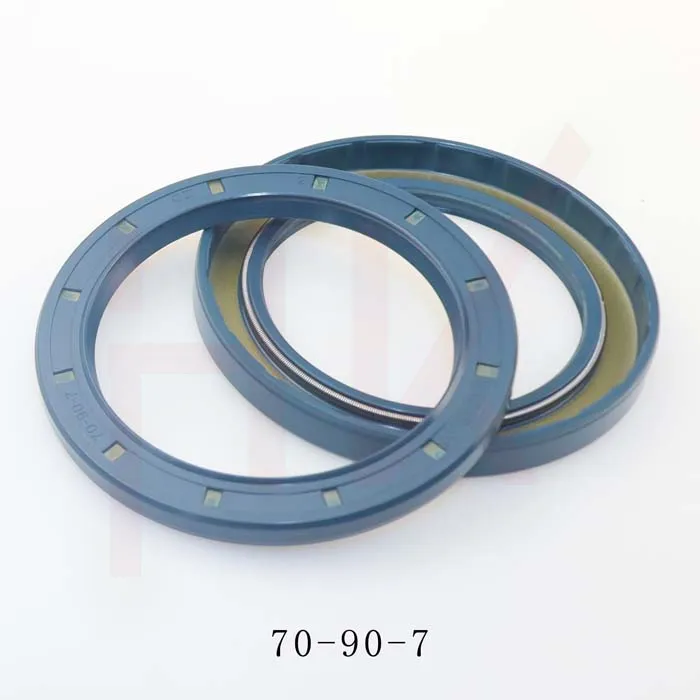Nov . 23, 2024 04:31 Back to list
shaft wipers
The Importance of Shaft Wipers in Industrial Applications
Shaft wipers, often considered a secondary component in machinery, play a crucial role in the efficient operation and longevity of various mechanical systems. They are primarily used to prevent contaminants, such as dirt, dust, and moisture, from entering critical areas of shaft assemblies. While they may not receive the attention that primary components like bearings or seals do, their importance cannot be overstated.
What Are Shaft Wipers?
Shaft wipers are protective devices typically made from durable materials, designed to wipe contaminants off rotating shafts as they pass through a stationary opening. Their primary function is to ensure clean operation by preventing foreign particles from causing wear and damage to internal components. They act to enhance the performance of machinery by maintaining cleanliness and reducing the need for frequent maintenance.
Key Features and Materials
Shaft wipers are available in various designs, accommodating different diameters and operational requirements. They can be made from a range of materials, including rubber, polyurethane, and other synthetic compounds. These materials are selected for their durability, flexibility, and resistance to chemicals and temperature variations.
Many shaft wipers also feature special lip configurations that help in scraping off debris more effectively. Some advanced designs incorporate multiple layers or integrated dust seals to provide an additional barrier against contaminants. The choice of material and design depends on the specific application, including the type of lubricant used and the environmental conditions the equipment will face.
Applications Across Industries
shaft wipers

Shaft wipers are utilized in numerous industries, including manufacturing, automotive, aerospace, and food processing. In manufacturing, for example, they are critical in CNC machines and other equipment where precision is paramount. The cleanliness maintained by shaft wipers helps in achieving higher accuracy and reducing the wear on bearings and seals.
In the automotive industry, shaft wipers are widely used in electric motors, power steering systems, and other rotating components. Given the harsh operating conditions, such as exposure to dirt and oil, having effective shaft wipers is vital to prevent premature failure of these components.
Moreover, in the food processing industry, maintaining hygiene and cleanliness is essential. Shaft wipers help in ensuring that equipment does not become contaminated during operation, thus complying with safety regulations.
Maintenance and Replacement
Although shaft wipers are designed to be durable, they are not immune to wear and tear. Regular inspection is necessary to ensure they function correctly. Signs of wear include cracking, excessive bending, or failure to clear contaminants effectively. If these issues are observed, timely replacement is crucial.
Ignoring the condition of shaft wipers can lead to more significant problems, such as increased maintenance costs, reduced efficiency, and potentially catastrophic failures of machinery. Implementing a maintenance schedule that includes the examination of shaft wipers can help in extending machinery life and optimizing performance.
Conclusion
While they may not be the most glamorous components of industrial machinery, shaft wipers fulfill an essential role in maintaining the integrity and efficiency of operations. By preventing contamination and ensuring clean surfaces, they ultimately contribute to the overall reliability and longevity of systems across various industries. Investing in high-quality shaft wipers and adhering to regular maintenance practices can lead to substantial savings and improved performance. As technology advances, the design and materials of shaft wipers continue to evolve, promising even greater efficiency and effectiveness in the future. Thus, recognizing their importance is crucial for anyone involved in maintaining industrial machinery.
-
TCN Oil Seal Metal Ring Reinforcement for Heavy Machinery
NewsJul.25,2025
-
Rotary Lip Seal Spring-Loaded Design for High-Speed Applications
NewsJul.25,2025
-
Hydraulic Cylinder Seals Polyurethane Material for High-Impact Jobs
NewsJul.25,2025
-
High Pressure Oil Seal Polyurethane Coating Wear Resistance
NewsJul.25,2025
-
Dust Proof Seal Double Lip Design for Construction Equipment
NewsJul.25,2025
-
Hub Seal Polyurethane Wear Resistance in Agricultural Vehicles
NewsJul.25,2025
-
The Trans-formative Journey of Wheel Hub Oil Seals
NewsJun.06,2025
Products categories
















